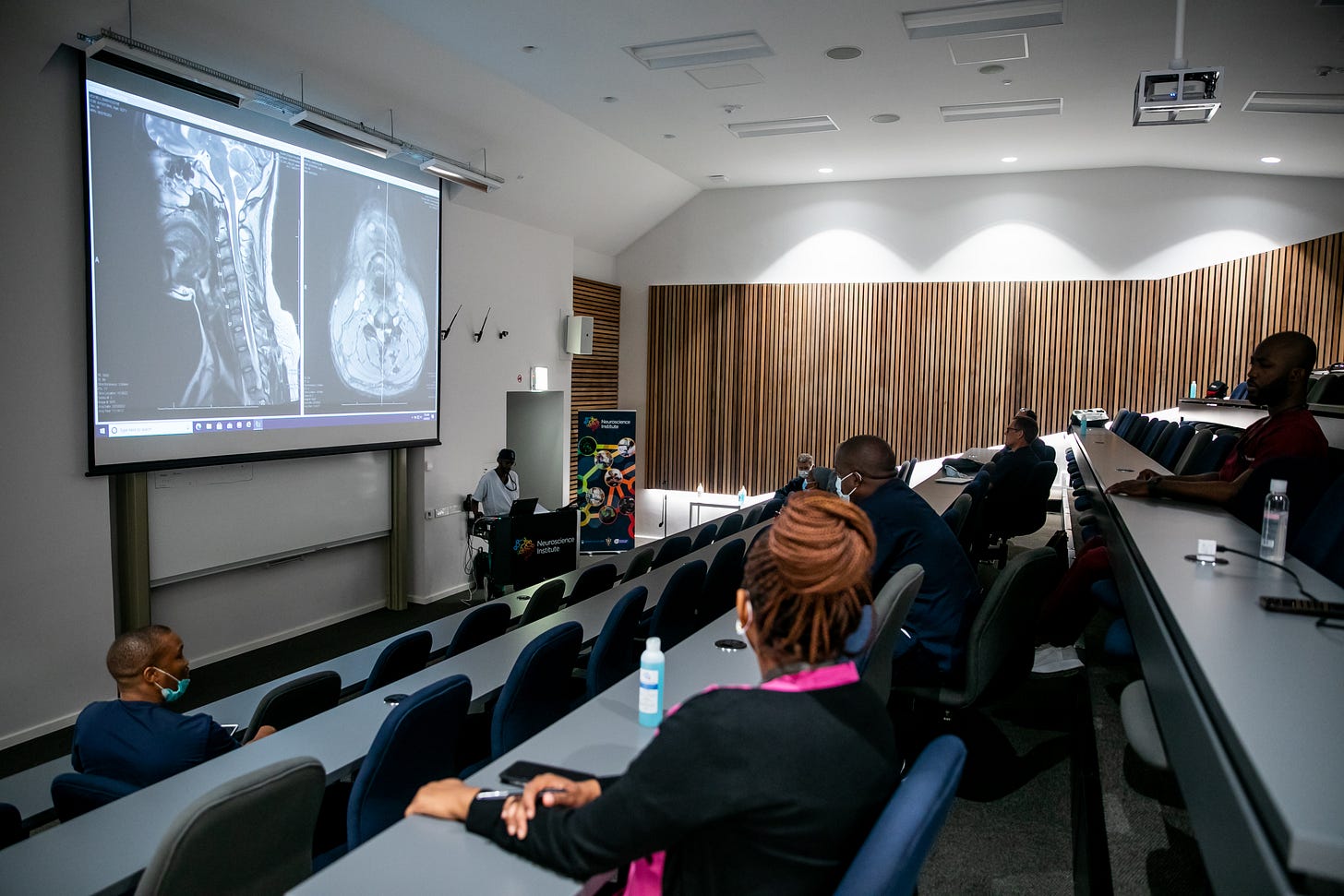A Spotlight on the MNeuroSc, UCT’s Most Interdisciplinary Degree
By Jess Kelly
The University of Cape Town has introduced a new Master of Neuroscience programme with the first cohort of students starting at the beginning of this year. This programme is one of the first of its kind in South Africa and seeks to help the field of Neuroscience grow within the country and the continent. Accepting students from a wide variety of academic backgrounds, this postgraduate degree provides an exciting opportunity for students seeking to further their studies. In an interview with Varsity, programme convener and developer Melike Fourie gives some more insight into the heart behind the degree, what it entails, and how it is going so far.

The creation of the degree began as a combined effort between Melike Fourie when she joined the UCT staff, and Graham Fieggen, the director of UCT’s Neuroscience Institute (NI), which was made possible through funding from the Gabriel Foundation. Both Fourie and Fieggen had completed one-year master’s degrees while studying in the United Kingdom and sought to establish a similar kind of programme in South Africa. As Fourie expressed, it is “very unique to have a one-year master’s programme in South Africa.” One of the benefits of such a programme is that despite its academic intensity, it provides a more financially viable option for many students.
One of the stand-out qualities of the MNeuroSc is its interdisciplinary nature. The degree is facilitated by seven departments across three faculties, with courses and supervisors coming from a wide range of departments. “It’s probably the most interdisciplinary programme that exists at UCT,” Fourie added. It is this interdisciplinary nature that makes it an opportunity for students to be exposed to the broad field of neuroscience and find “where their niche is.”
In addition to the degree stemming from a multitude of disciplines, the degree is open to students from a wide variety of backgrounds. The current cohort of 12 is comprised of students with backgrounds in medicine, various kinds of engineering, philosophy, biochemistry, and psychology. This, Fourie explained, is a strength of the programme. “There’s a need for students to enter into neuroscience from diverse fields,” she said. This diversity broadens both the field and the students. It also allows students to investigate topics and conduct research in neuroscience through the lens of their academic foundations.

To accommodate for this wide range of academic backgrounds, the degree is quite lecture-heavy, with two thirds of the programme being content-based. The other third is a mini dissertation. This structure allows students without extensive prior knowledge of the field to study towards a career in neuroscience.
The Master of Neuroscience degree is at the forefront of developments in neuroscience, integrating artificial intelligence into the coursework. Through the Department of Mathematics, students in the MNeuroSc programme are exposed to a course entitled “Machine Learning for Neuroscientists.” A further aim of the programme is to develop students’ ethical sensibilities in neuroscience research in light of emerging technological advancements in the field, such as AI and neurogenomics. The programme seeks to emphasise the need to “engage with those technologies responsibly.”
The degree is ultimately designed to be “a pipeline for research and for PhD study” and seeks to contribute to the work the NI is doing to develop neuroscience research in Africa, which has been largely overlooked with the dominance of Western publications and data in the field. However, the degree also opens doors to careers beyond research, such as data analytics, genetic counselling, science journalism, and bioinformatics. While this degree does not lead to any clinical registration, the knowledge gained from it can supplement other training for students seeking careers in clinical settings.

Applications for the 2026 academic year are set to be open from August to September this year. This degree, which Fourie says is “long overdue in South Africa,” provides an exciting opportunity for students from diverse academic backgrounds to bring their unique perspectives to help shape and grow the field of neuroscience in South Africa.
This is a degree for the curious. As current MNeuroSc student Matthew Murphy conveyed when speaking with Varsity: “You realise how little we know, and how much more there is to understanding our brains and how they relate to behaviour.”



